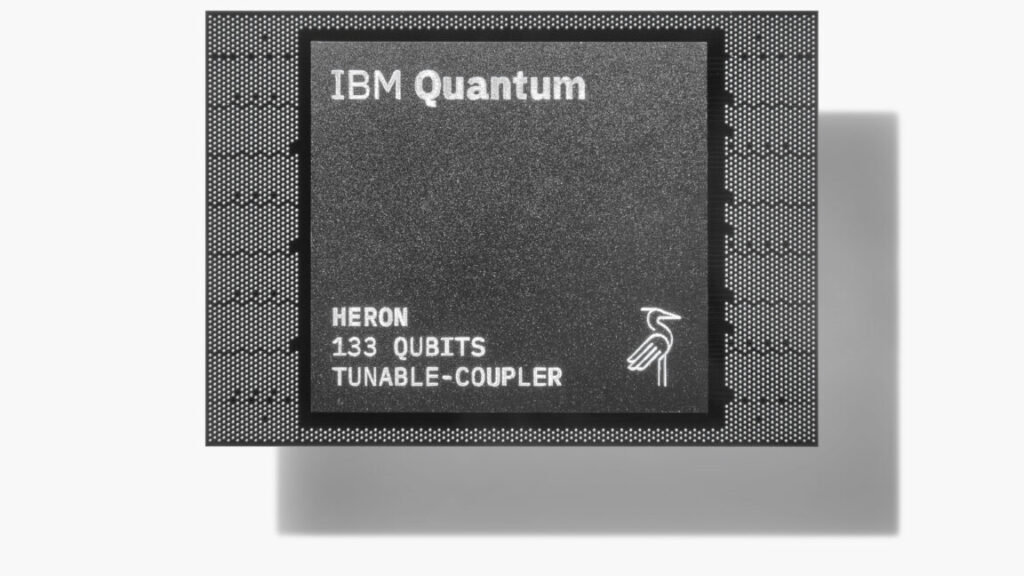IBM boosts the amount of computation you can get done on quantum hardware
By making small adjustments to the frequency that the qubits are operating at, it’s possible to avoid these problems. This can be done when the Heron chip is being calibrated before it’s opened for general use.
Separately, the company has done a rewrite of the software that controls the system during operations. “After learning from the community, seeing how to run larger circuits, [we were able to] almost better define what it should be and rewrite the whole stack towards that,” Gambetta said. The result is a dramatic speed-up. “Something that took 122 hours now is down to a couple of hours,” he told Ars.
Since people are paying for time on this hardware, that’s good for customers now. However, it could also pay off in the longer run, as some errors can occur randomly, so less time spent on a calculation can mean fewer errors.
Deeper computations
Despite all those improvements, errors are still likely during any significant calculations. While it continues to work toward developing error-corrected qubits, IBM is focusing on what it calls error mitigation, which it first detailed last year. As we described it then:
“The researchers turned to a method where they intentionally amplified and then measured the processor’s noise at different levels. These measurements are used to estimate a function that produces similar output to the actual measurements. That function can then have its noise set to zero to produce an estimate of what the processor would do without any noise at all.”
The problem here is that using the function is computationally difficult, and the difficulty increases with the qubit count. So, while it’s still easier to do error mitigation calculations than simulate the quantum computer’s behavior on the same hardware, there’s still the risk of it becoming computationally intractable. But IBM has also taken the time to optimize that, too. “They’ve got algorithmic improvements, and the method that uses tensor methods [now] uses the GPU,” Gambetta told Ars. “So I think it’s a combination of both.”
IBM boosts the amount of computation you can get done on quantum hardware Read More »
